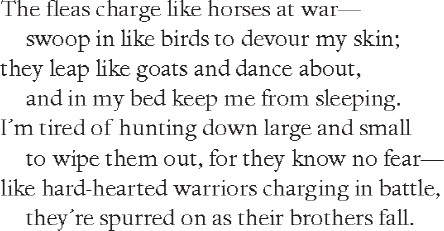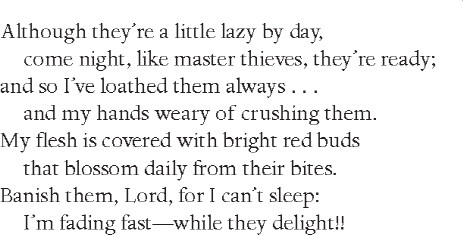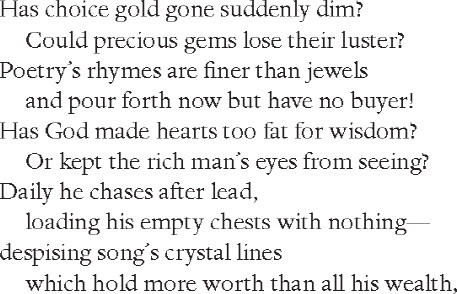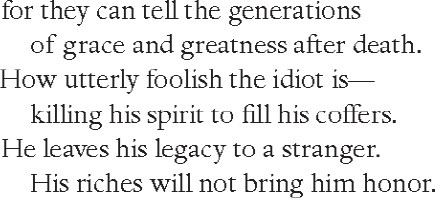YOSEF IBN SAHL
(mid-eleventh century–1124)
The small fraction of YOSEF IBN SAHL’s work that has come down to us seems to bear out his friend Moshe Ibn Ezra’s judgment that his poetry “joined extremes of firmness and sweetness, strength and grace” and that when he aimed his arrows at the enemies of poetry, “he made men laugh describing their ways, and gladdened their hearts revealing their lies.” If not for his uncontrollable tendency toward the satire at which he excelled, says Ibn Ezra, he would have been among the front rank of men. In terms of talent, Schirmann implies, Ibn Sahl was one of the most important poets of his generation. His surprising poem about fleas is a relatively late discovery; it was found among the papers of the Cairo Geniza (alongside HaLevi’s famous ode, “Won’t You Ask, Zion?”) and published in 1965. One of only five extant poems by Ibn Sahl, it shows the poet in a lighter mode that was still somewhat rare in the Andalusian matrix and may also give some indication of the satirical impulse Ibn Ezra notes. Three of his other surviving poems are addressed to Ibn Ezra (two are translated below) and there is also a single erotic poem. Born to a distinguished family in the second half of the eleventh century, Ibn Sahl studied in Lucena, where he was one of Ibn Ghiyyat’s leading students. He died in 1124, in Cordoba, having served as a judge in that city’s religious courts for the last ten years of his life.

THE FLEAS



(to Moshe Ibn Ezra)


(to Moshe Ibn Ezra)

